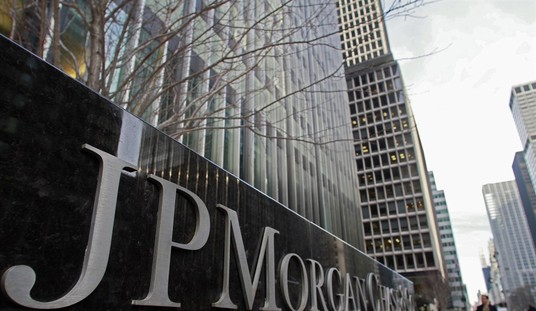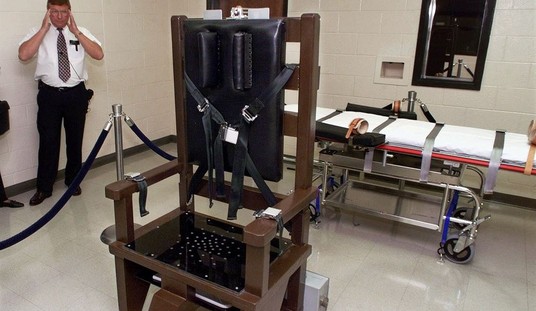By now, it’s clear that the Minneapolis city council’s original vision for its police department — abolition — is a no-go. Ever sine the George Floyd riots, the council has fanned the flames of unrest and crime by turning the police department into the community’s bête noire, and accusing residents who call them for property crime of clinging to “privilege.” That vision has resulted in massive upticks in crime — homicides up well over 50%, shootings nearly doubled, and carjackings up an astounding 537%.
If that vision doesn’t work, then what will? Police chief Medaria Arradondo lays out his own vision for the future of the police department in today’s Star Tribune, which in part embraces some of the calls for reform. Social workers on some calls? Sure, and Arradondo also declares that Minneapolis can’t “arrest our way out of the many challenges we are currently facing.” However, Arradondo insists that the city needs enough sworn officers to get the job done right now, and to help build the trust necessary for a “transformation,” emphases mine:
• Public safety. Every victim of violent crime pains me. It is easy for us to take for granted when we hear numbers — with 80 people killed by homicide this year. More than 500 individuals shot and wounded by gun violence, hundreds of carjackings and robberies. These are not statistics. These are mothers, fathers, brothers, sisters, store clerks, students and neighbors.
We know that safety in our city is created through an ecosystem of support and everyone plays role in changing those conditions that allow violence to occur. This ecosystem’s strength relies upon having enough sworn officers and staff to respond to crime and establishing deep and mutually accountable relationships with our communities. We cannot arrest our way out of the many challenges we are currently facing. However, we must hold those accountable who would harm others in our city. And we need to work diligently on evidence-based and data-driven proven alternatives to traditional policing where they are an appropriate response.
• Innovation. In the policing context, innovation is not only creating with the community something that transforms the MPD, but also creates the conditions for safe and healthy communities. It means increasing the role of social workers and mental health professionals to help us solve problems and avoid violent confrontations. As your chief, I agree with these innovations and will implement approaches the community and our department build together.
• Accountability. As chief, I will use all my authority and available resources to hold officers and supervisors accountable for misconduct. We need legislators and elected leaders to work to modernize the structure of the current arbitration process that ensures bad cops don’t get their jobs back. Community members and good officers both want and deserve this.
Both of the bolded parts represent a slap at the city council. It’s impossible to conduct the kind of community policing required to rebuild trust in the city without having enough sworn officers on the street. The MPD is down 20% or more in effective sworn manpower since the start of the riots, which means they only have enough to respond to emergency calls — usually the worst police/community encounters. By demagoguing the police over the last six months, the council has made the job of “transformation” impossible for Arradondo. As the crime wave demonstrates, they’ve also emboldened the criminals who plague the city by making it clear that city leadership doesn’t support the police department they themselves run.
The second bolded passage is only slightly more subtle. Politicians in every major American city get elected by pandering to public-employee unions, and then paying the PEUs back at contract negotiation time. Arradondo wants the “legislators” of Minneapolis to break that cycle and take responsibility for their role in imposing accountability. That means getting tough with PEUs — hopefully across the wide range of municipal agencies, but certainly the police — if the council truly wants the reform they seek. For the last six months, the council has acted as though police accountability is some foreign component that they have to demand, not the most important job in their own authority and jurisdiction.
Clearly, Arradondo has grown tired of seeing the city council use the police department as a quasi-scapegoat for the council’s own unseriousness. His “vision” is still short on specifics and has its share of nebulous feel-good clichés, like this especially:
MPD members will keep our social contract sacred and value every interaction that embodies the principles of procedural justice and community policing where success is determined by the amount of trust engendered.
Which character from Mad Men wrote that line? Still, even with its shortcomings, Arradondo’s vision includes taking responsibility and improving accountability while protecting people from violent criminals. He’s not writing “lie back and think of England” memos to Minneapolitans in response to a crime wave that the city’s leadership encouraged and amplified. That makes Arradondo’s vision far, far superior to the nebulous, contradictory, and pusillanimous clichés coming from the Minneapolis city council the past six-plus months.








Join the conversation as a VIP Member